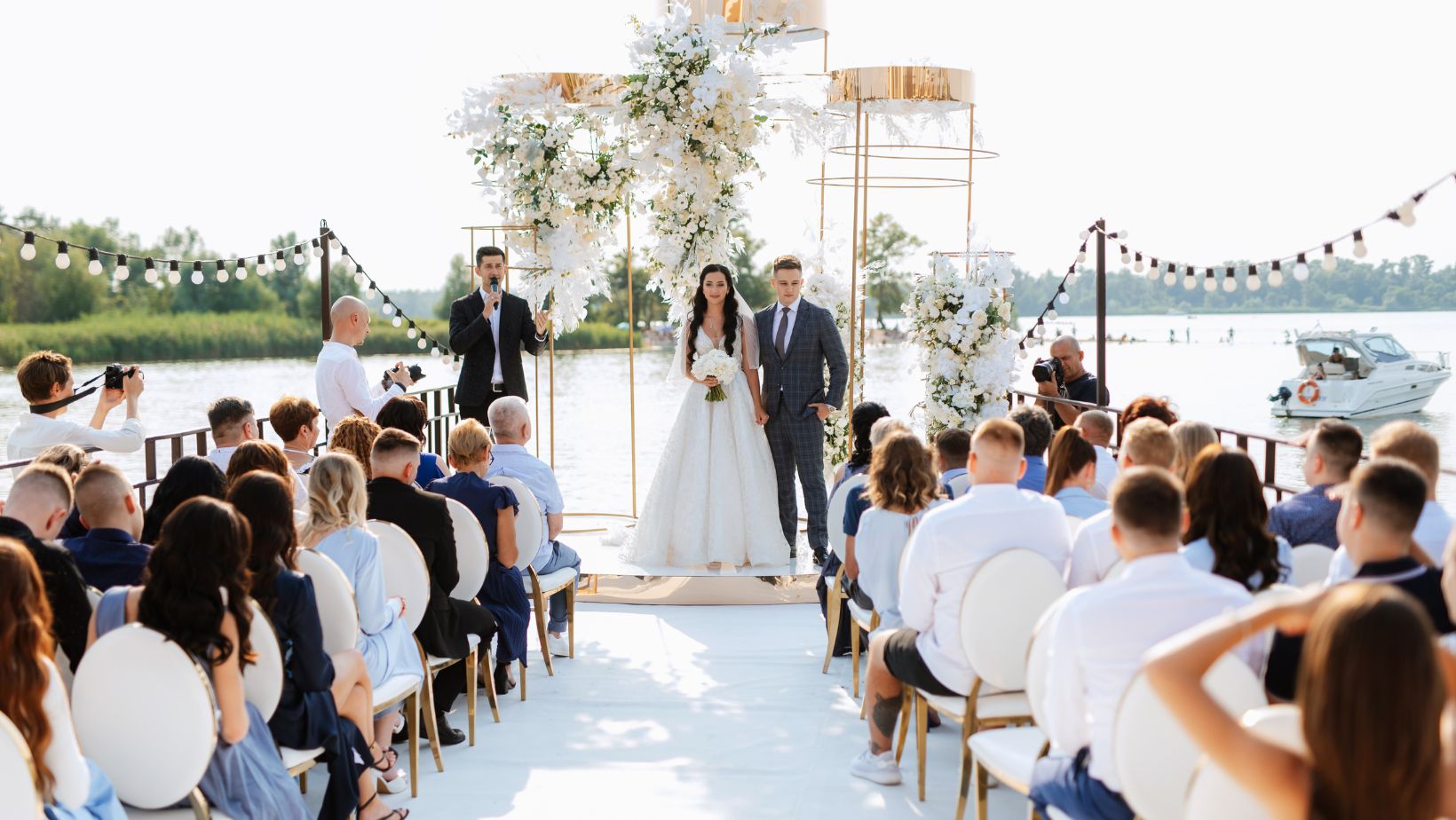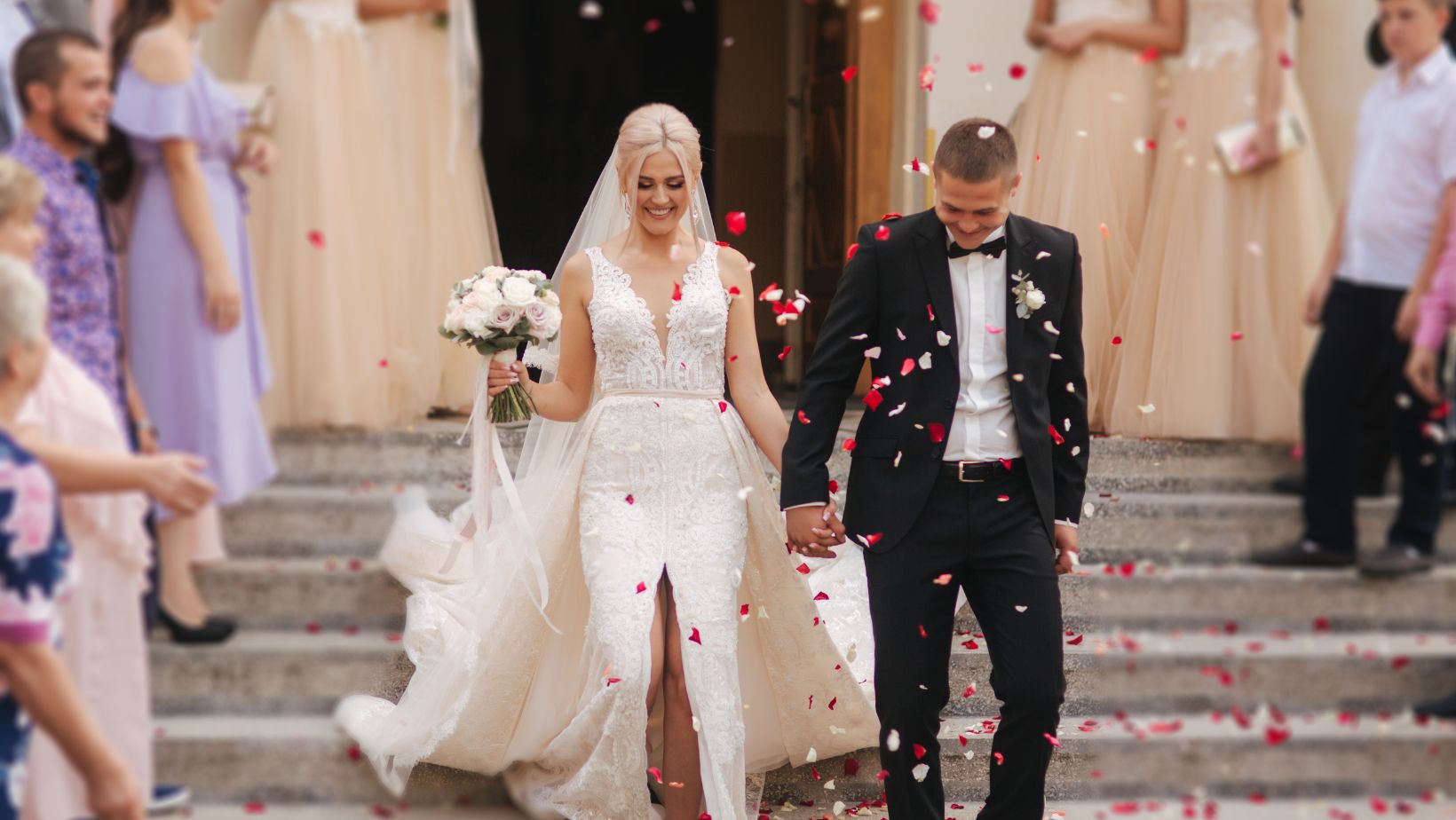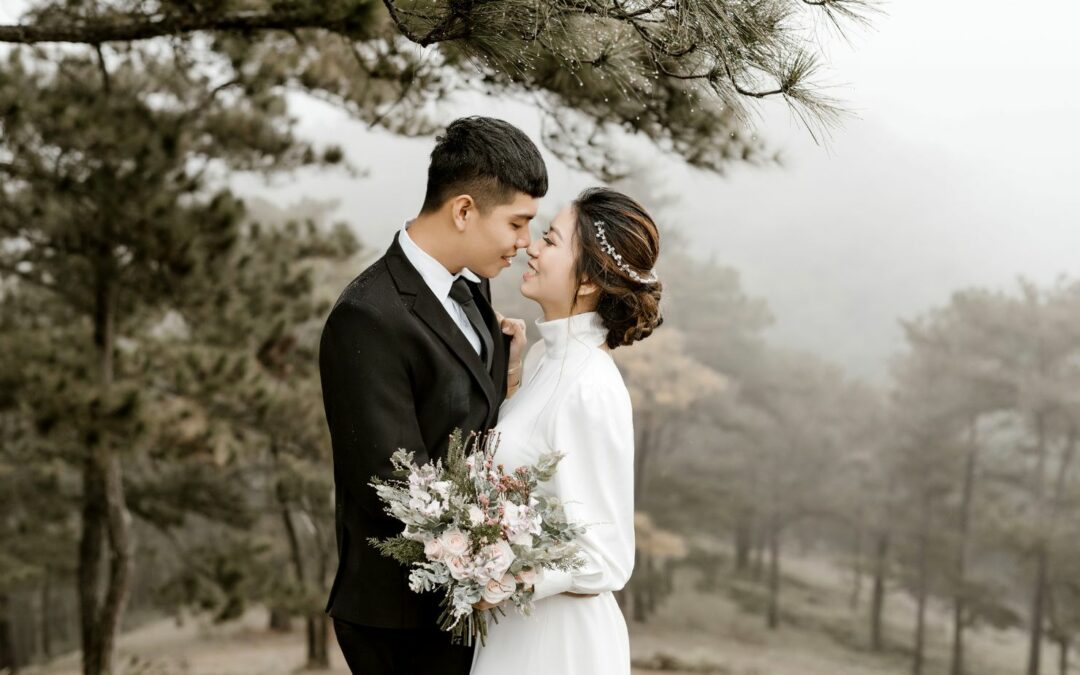‘Weddings’ is a word that can stir up a whirlwind of emotions from anyone who loves to hate them or hates they love them. They are a celebration of love featuring a ceremonious display of affection while engulfed in the doting eyes of everyone who loves the couple. What’s not to love? The dried flower bouquet, elegant decor, music, and festivities make weddings a fan favorite. However, for women, weddings aren’t just about the physical theatrics or emotional and traditional symbolism. It’s about so much more.
Intrigued? So are we.
So, just like most couples’ approach to love, let’s dive head first into the heartfelt and empowering significance of weddings for women, journeying beyond the customary facets into the realms of personal growth, community, and self-expression.
What Weddings Mean To Women
Because each woman is unique, there’s no default significance of weddings to all women. Sure, it’s a laudable event, but for some, it transcends societal constructs. Let’s explore.”
A Tapestry of Dreams and Decisions
First and foremost, weddings are a canvas on which many women paint their dreams and aspirations. From the fairy-tale gowns to the choice of flowers, preferably ethical dried flower bouquets that portray tales of first dates and whispered promises, every detail is a stroke of personal expression. But it’s not all about the aesthetics; it’s the act of decision-making, often in collaboration with a partner, that emboldens a woman.

This process is a powerful assertion of preferences and values, signaling a leap from individualism to partnership without losing one’s essence.
An Anthology of Stories
Beyond the visible, every wedding is an anthology of stories and relationships. For many women, it’s a day that celebrates not just a union with a partner but the intertwining of families, friends, and communities. It’s a moment that acknowledges the village it takes to nurture love and life. These relationships are celebrated, tested, and strengthened in the whirlwind of wedding preparations and the day itself. At weddings, the woven tapestries and stories surrounding the connection of these two souls are acknowledged and celebrated.
A Milestone of Personal Growth
For numerous women, their wedding marks a significant phase of personal development and transformation. The journey to marriage often prompts introspection and self-discovery, encouraging brides to reflect on their personal values, aspirations, and the future they envision with their partners. This process is not just about planning a life together but also about understanding oneself better. It’s about contemplating one’s role in a partnership, community, and family and what it means to transition into these new roles. For many, this transition is a catalyst for personal growth, imbuing them with a sense of maturity, responsibility, and self-assurance.
A Celebration of Identity and Heritage
Weddings offer women a unique opportunity to express their individuality, identity, heritage, and values. For many women, this day is an opportunity to honor their roots, culture, and family traditions, weaving them into the fabric of the ceremony and celebration. It’s a way of paying homage to the past while stepping into the future, ensuring that the threads of history and identity continue to enrich their new family tapestry.

From the choice of attire to the selection of rituals that resonate with them, every decision is a reflection of their identity and personal beliefs. It’s a space to innovate, blending traditions with contemporary values, creating a celebration that truly reflects the couple’s unique bond and outlook on life. This expression of identity and values is a powerful statement of self-assurance and pride in one’s roots and beliefs.
An Empowering Leap into the Future
Finally, a wedding is often seen as an empowering leap into the future. It’s a declaration of hopes, dreams, and commitments, not just to a partner but to oneself. For many women, it symbolizes a transition into a new phase of life, ripe with possibilities, challenges, and growth. It’s about becoming their person, and for some who feel like they’ve waited their whole lives for their life to start, a wedding signifies a springboard to this new life. They’re stepping forward with a renewed sense of purpose, ready to embrace the adventures and trials of shared life.
Conclusion
In the end, the significance of weddings for women transcends the bounds of tradition and symbolism. It’s about personal expression, growth, community, and a celebration of love in its many forms. This journey, marked by a single day, carries the promise of a lifetime of stories, challenges, and triumphs. So, here’s to weddings — not just as ceremonies but as milestones of personal and collective significance that resonate well beyond the “I dos.”



